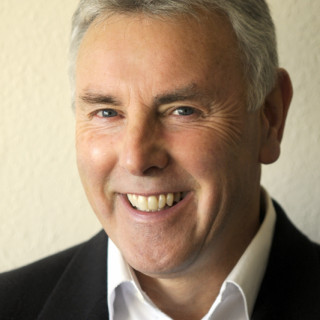What is Reflective Practice?
What is Reflective Practice?
Reflective Practice is the foundation of professional development; it makes meaning from experience and transforms insights into practical strategies for personal growth and organisational impact. It involves integrating activities into daily life on a routine basis which raise awareness, prompt critical analysis and aid self-management and decision-making. It means:
- Learning to pay attention – listening to ourselves
- Coming face to face with our assumptions
- Noticing patterns
- Changing what we see
- Changing the way we see
Reflective Practice is a way of recognising and articulating what we’re learning on a moment by moment basis. Children learn by creating new connections in the brain and putting them together in sequences. Adults, however, already have a brain full of connections, and reorganising existing knowledge – sometimes referred to as unlearning – is an essential component of the process. Each adult learner has a unique set of experiences, mental models and assumptions.
Restructuring and reordering what is known requires active, engaged participation in the learning process, relating ideas and concepts to personal experience. Research shows that for this to happen the new knowledge needs to be of practical and personal value to the learner. Adults commit to learning when they can connect it to their goals and aspirations.
What is the role of reflection in professional learning?
Reflection deepens learning. The act of reflecting enables us to make sense of what we've learned, why we learned it, and how each increment of learning took place. Moreover, reflection is about linking one increment to the wider perspective of learning - heading towards seeing the bigger picture.
Through reflection, learning is integrated, internalised and personalised. Thinking about an experience is essentially a cognitive activity, but reflection is also emotional and physical, and is linked with our values and social identity. Viewing issues from different perspectives challenges assumptions and established patterns of behaviour and encourages the development of new ways of seeing.
Transformational theories suggest that adult learning is principally a meaning-making activity; that acquiring job-specific skills and spending time on continuous professional development creates the opportunity to gain a deeper understanding of self as learner as well as acquire a body of knowledge. This is often referred to as double loop learning.
What is the difference between reflection and Reflective Practice?
An important characteristic of Reflective Practice rather than reflection is the fact that it is captured and expressed in some form - usually written, spoken or pictorial - on a systematic basis. This is because learning comes not only from the ‘in the head’ reflection but from the process of representing the reflection itself.
How does Reflective Practice improve personal and professional effectiveness?
Reflective Practice is an essential part of developing new skills, but at a deeper level it grows the capacity of the individual to respond to challenges, make timely decisions, manage emotions, conduct productive relationships and cope with stress.
For individuals, the outcomes of developing a regular habit of reflective practice can be:
- An increase in self-awareness, emotional intelligence, the capacity for emotional regulation and, as a consequence, the ability to inspire, influence and motivate others
- An enhanced ability to make decisions which show good judgement, awareness of risk and systemic impact
- A growth in the capacity to generate innovation through the technique of asking open questions and attending to the answers with an open mind
- The ability to be compassionate to self and others and inspire trust through demonstrating trustworthiness
Reflective Practice expands a leader’s self-awareness, brings rigour to critical thinking and hones communication skills, all of which enable greater impact at an organisational level as ways of working and working relationships are being challenged by a volatile, uncertain, complex and ambiguous world. It aligns with a range of organisational development issues, such as ethics, engagement, empowerment, well-being and sustainability.
"Reflective Practice has been a good use of my time”, commented a senior leader in an international aid charity.
How can you get started and develop your reflective practice?
One approach is to work with a person trained in guiding reflective practice. In the world of coaching and mentoring, this person is a Coaching Supervisor who has substantial understanding of both coaching competencies and additional experience with coaching psychology, dynamics of relationships, human systems dynamics and various tools for deep reflection.
A result of this work is development of an internal supervisor – a part of us that observes our coaching in real time and helps keep the mirrors clean and aligned. Perhaps by asking yourself questions like:
What do I feel good about in my mentoring?
What is going well/less well?
What boundaries with my clients are in need of attention?
Getting started by working with a reflective practitioner/supervisor is often the best way, to show you a range of ‘tools’ to embed this process. These may include your focus on time, attention, space, curiosity, experimentation. Reflective journals and drawing are also great ways to capture your experiences, as is Critical Incident Analysis and use of the Kolb Learning model.
Ready to reflect now?!
Article compiled by Peter Welch – co-founder of The Association of Coaching Supervisors –June 2019
Share this article

Lifetime Member

Author: Christoffel Sneijders

Author: Sylviane Cannio, MCC, MP, ESIA

Author: Michelle Lucas
Online Community
Become part of our online family. Connecting and empowering each other to succeed. We want to give supervision wider exposure and a larger 'share of voice' in the coaching community. Come and join us!